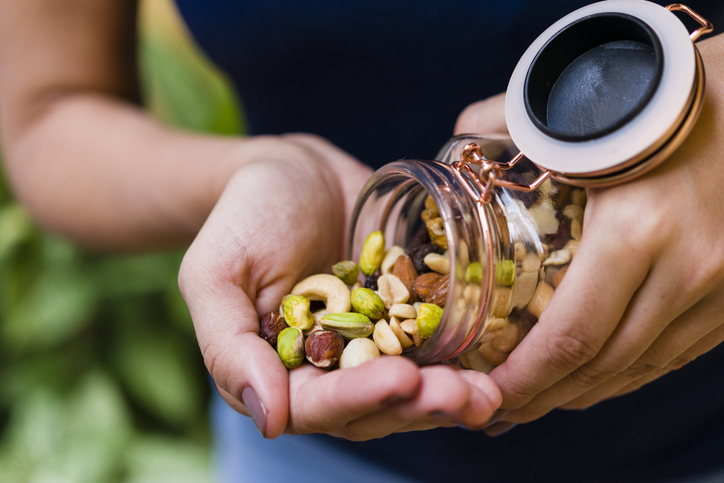You try to eat healthily, and you grab a healthy snack during the day, but are you sure that the “health food” is, in fact, healthy? Some so-called healthy foods are very misleading.
Topping the list is granola bars – if they only have whole grains, nuts, and dried fruits, then chances are they are good for you. However, many have a lot of sugars, oils, and artificial flavors.
Yogurt is a good choice when you want something with high protein and low calories. However, make sure you’re not grabbing the ones with lots of sugar – or even candy!
Fruit juice can be refreshing, but it usually has lots of additives, so you’re better off just eating the real fruit itself.
And finally, just because something is called “organic,” don’t just assume it’s healthy. Read the label because those snacks may contain just as much sugar, fat, and calories as the non-organic ones.
Image Credit: Julio Ricco / iStock / Getty Images Plus










